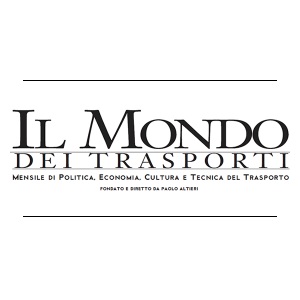Fai Conftrasporto launches its Manifesto for Europe. It does so from the spaces of the Transpotec Show, scheduled at the Milan Fair, where the Federation of Italian Road Transporters – 36 territorial associations, thousands of companies and a fleet of 90 thousand vehicles – is present with its own stand.
The document, signed by Minister Salvini, will be delivered in the next few days to the leaders of all political parties in view of the next elections on 8 and 9 June; it was illustrated by president Uggè and FAI general secretary Carlotta Caponi, who underlined the centrality of transport and logistics in the Italian and European economy.
“Centrality that emerged in the Covid emergency, with the fundamental role of shipping, or even with the wars in Ukraine and in the Gaza Strip, with the situation in the Red Sea – explains Uggè – Again, the fundamental role of the sector makes us understand the constraints imposed within the European Union in the transit of goods, from Bianco to Frejus, to Brenner, with the critical issues and losses in economic terms due to the slowdown of vehicles due to Austrian bans or work in progress”.
A panorama in which road transport is still predominant: 74% of goods in the EU move by road, in Italy the percentage is 84%: if on the one hand the fundamental role of road transport emerges, on the other imposes an acceleration in terms of intermodality and infrastructure, which are currently not adequate to handle the weight of increasing demand, with consequent road congestion.
“It is time to proceed quickly on major works, starting with the bridge over the Strait of Messina, to re-establish the principle of free movement of goods, to ensure the complete infrastructure of the TEN network, also with reference to the Scandinavian corridor, and to develop with targeted incentives road-sea and road-rail intermodality”, declares Uggè.
Fai-Conftrasporto identifies four lines of intervention in its Manifesto: people, competitiveness, safety and environment. People. At the center, the shortage of drivers (over 20 thousand are missing in Italy), in light of which it is necessary to update European legislation on professional training, considering the technical-digital evolutions of the vehicles, and recognize the qualifications issued by non-EU countries. EU. Against exploitation and social dumping, it is essential to monitor the correct levels of protection and remuneration.
Competitiveness. Fai-Conftrasporto hopes for the establishment of a European control room for the planning, design, construction and monitoring of strategic infrastructures.
The intermodal system, crucial for competitiveness, must be able to count on the availability of real transport infrastructures and services. The permeability of the Alpine arc is also fundamental: it is necessary to coordinate maintenance work and remove the limitations at the Brenner Pass. For the development of national and European traffic, the strategic role of the Euro-Mediterranean dimension must be recognized, with the complete implementation of the TEN network. To make exchanges more fluid, digitalisation and the development of software to optimize routes and loads are central, as long as the processes are homogeneous for the interoperability of the systems.
Safety. Fai calls for more investments in comfortable, equipped and safe rest areas throughout the territory, and to implement tools for compliance with the rules on driving times and cabotage; hopes to overcome the restrictive interpretation of the DNSH principle, according to which PNRR resources cannot be used to finance works that cause damage to the environment. An interpretation that ended up excluding the modernization of infrastructure from the intervention priorities, to the detriment of safety.
Environment. Environmental sustainability must be combined with economic and social sustainability. We need to overcome the ‘all electric’ ideology (in Italy 63% of the electricity used is currently produced through fossil fuels). The European target of 2050 is ambitious and shared by Fai, but the envisaged rules are not very consistent with the concrete availability of green technologies and vehicles, and entail unsustainable costs and obligations for companies. Fai therefore calls for the establishment of state aid to renew fleets, which considers all technological solutions, including those linked to biofuels.
At the end of the morning, the book Paolo Uggè was also presented: the man with the suitcase – 50 years of road transport history which tells the story of Italian road transport through the lens of a historical witness. The book, with a preface by Gianni Letta and an introduction by Pietro Lunardi, will be available on Amazon in the next few days. The entire proceeds will be donated to Progetto Itaca, a voluntary association that supports vulnerable people and their families.
